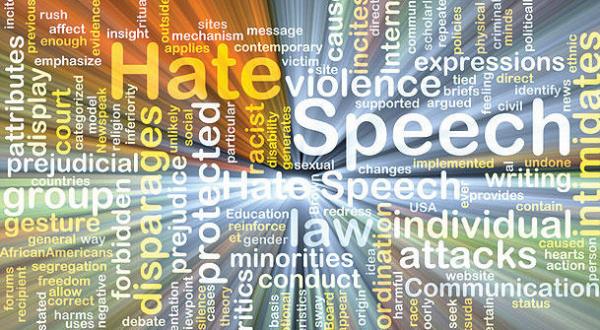Geneva – “Should the United Nations play a leading role in countering hate speech and expressions of “violent extremism” in the media?”
This was the question debated by a special panel at the Palace of the Nations, the European headquarters of the United Nations in Geneva on Monday under the auspices of UNESCO’s liaison office.
The panel took place as part of the UN’s 32nd session on human rights and in response to the UN Secretary-general Ban Ki-Moon’s special report on “violent extremism”.
Moderated by Imogene Foulkes, the BBC’s correspondent at the UN, the panel included several ambassadors along with UNESCO’s Director for Freedom of Speech Guy Berger, the organization’s liaison head Abdul-Aziz Al-Muzaini, and Iranian journalist Amir Taheri, a former Executive Board member of the International Press Institute (IPI), as a representative of the media.
In his welcoming remarks, Al-Muzaini emphasized the fact that today there were “unprecedented opportunities for expression thanks to new technologies”, adding that “we should equip young people with knowledge, skills and values to engage them as global citizens.”
Ambassador Paivi Kairamo, Permanent Representative of Finland to the United Nations and International Organizations in Geneva, underscored the imperative of media literacy.She recalled that the critical role of free and independent media in promoting intercultural dialogue was reaffirmed in the Finlandia Declaration on “Access to Information and Fundamental Freedoms” which was adopted at the 2016 World Press Freedom Day celebration in Helsinki last May.
Several of the diplomats insisted on the need for the UN, through UNESCO, to establish “rules and modalities” through which “hate speech” and “radicalism” could be recognized and combated. They said UNESCO’s “Plan of Action” was a step in the right direction to establish a framework through which freedom of expression is exercised in accordance with universally accepted values with full respect for a positive balance of views.
Some fireworks were introduced into the debate by the panelist Amir Taheri who was the last to speak.“Since I haven’t prepared a written speech, let me offer an unadorned response to all the plans exposed here,” Taheri said. “I believe many in our profession would share my sentiments.”
Recalling the 1970s and 1980s when “some powers” tried to use UNESCO as a vehicle for imposing control on the media across the globe, Taheri said he was “always deeply suspicious” of international organizations trying to legislate a one-size-fits-all scheme to regulate freedom of expression.
“In the bad old days, the move in that direction was called The New World Information and Communication Order (NWICO), a brainchild of the Soviet bloc in the context of the Cold War,” Taheri said. “The architects of that scheme proposed to issue UNESCO media permits for journalists across the globe and impose rules binding on all member states. In other words they wanted to fence us in by pretending they were protecting us.”
Recalling the campaigns undertaken by the IPI and other groups dedicated to press freedom, Taheri claimed that the defeat of NWICO was a major victory for freedom of expression throughout the world. “Today, anyone trying to revive that monster would be laughed out of the room,” Taheri said. “Nevertheless, we have to remain vigilant against any attempt at media control via the UN or UNESCO. A majority of the members of the UN are states that cannot be regarded as lobbyists of press freedom, to say the least. To ask them to regulate the media with the pretext of controlling hate speech is to give them a license to intensify their system of censorship.”
Taheri claimed that the UN has not succeeded to define “peace” or “terrorism” after decades of debate and would not be able to define the word “hate” either and thus cannot pretend to regulate the media in the name of “combating hate speech.”
“Any talk of regulating freedom of speech puts us on a slippery slope that could lead to censorship curtailing freedom of expression which is a basic human right,” Taheri said. “My message to you on behalf of journalists everywhere is simple: don’t fence us in!”
